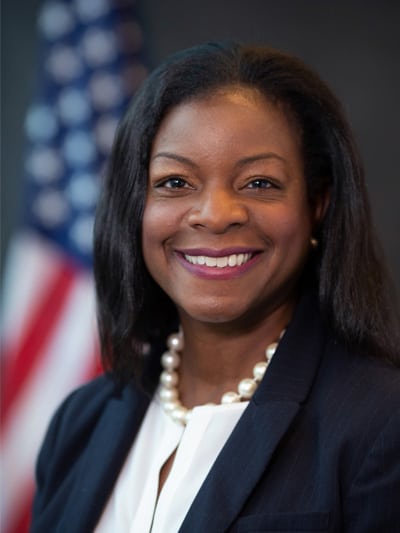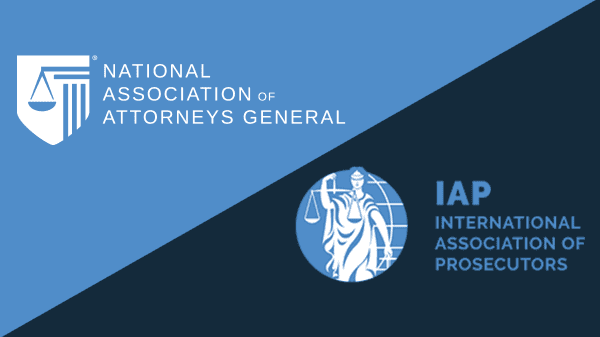Recent unsettling events in the United States have reminded us that protecting journalists and safeguarding enshrined principles like freedom of the press and expression are paramount to the overall welfare of any society. Most recently, mobs that stormed the U.S. Capitol during the January 6 riots sought to target elected and other government officials but also journalists, resulting in direct assaults, threats, and acts of violence against them as they covered events of the day. Prior to January 6, journalists reported harassment while covering events related to the national presidential election. Journalists during the George Floyd protests that swept the country last year reported being subjected to acts of violence, threats, and intimidation as they attempted to cover events in real time. And, in June 2018, in Annapolis, Maryland, a masked gunman fatally ambushed journalists in a mass shooting at the Capital Gazette newspaper killing five journalists and injuring two others.
Although incidents attacking journalists are fairly rare in the United States, we are not immune. Journalists have been targeted, harassed, assaulted, and even killed simply because of their status and for performing their job. Thankfully, unlike many of their global counterparts, most journalists in the United States do not operate in a state of perpetual fear that they will be physically harmed for conducting sensitive investigations, searching for the truth, or engaging in mundane journalistic activities. This luxury is one that journalists in many parts of the world only wish they could experience, since over the last decade a journalist has been killed on average every four days.1 Nor, when such troubling events occur, is there confidence that the perpetrators will be held accountable utilizing every legal and social avenue available. Nearly nine out of ten cases where journalists are killed remain judicially unresolved.2
Impunity for attacks on journalists remains a ubiquitous challenge for many countries and particularly for prosecutors. State attorneys general are an integral part of that conversation. State attorneys general support the principle that aggression is never an appropriate response and that preserving the rule of law is supreme, as noted in their joint statement about the violence at the U.S. Capitol. To address entrenched factors contributing to impunity and to improve capacity for prosecutors, NAAG supported a partnership with the United Nations Educational, Scientific and Cultural Organization (UNESCO) and the International Association of Prosecutors (IAP) to produce prosecutorial guidelines focused on promoting journalist safety and protecting rule of law and freedom of expression.
Prosecutors are uniquely situated and instrumental to the protection of freedom of expression. That freedom is a fundamental human right and privilege globally recognized for individuals and central to the tenets of various United Nations conventions, regional charters, and many countries’ constitutions. The guidelines recognize these principles first and foremost while simultaneously focusing on three pivotal techniques to combat impunity: prevention, protection, and prosecution. Equipping prosecutors and other attorneys with foundational knowledge and skills to understand the intricacies of these special cases involving journalists and raising awareness of prosecutorial best practices are critically important to society’s general welfare. As the national climate and conversation about the press evolves, state attorneys general may find these guidelines a helpful resource.
Specifically, the guidelines are divided into seven categories, designed to increase capacity among prosecutors to support investigations, where appropriate and as permitted by law, and to prosecute cases:
- Conducting and supervising investigations and offering advisory assistance to law enforcement agencies
- Pinpointing the various stages and determinations for proceedings and preserving evidence
- Ensuring that journalistic sources are fully protected
- Safeguarding victims and witnesses, granting immunity where appropriate, and offering advantages for collaborating witnesses.
- Promoting efforts to engage in mutual legal assistance in criminal and extradition cases
- Prioritizing and recognizing the special nature and sensitivities of gender-based crimes and other forms of hate crimes
- Focusing attention on post-conflict jurisdictions and transitional justice issues
Accounting for the varying legal authority and strategies applied to these cases by prosecutors throughout the world, the guidelines emphasize the following five substantive areas:
- The goals of the guidelines are to equip prosecutors to understand the special nature of these cases because they directly target journalists and to reinforce the public benefit and welfare of society generally when freedom of expression is normalized. Moreover, attention must be given to the prevention, protection, and prosecution of attacks on journalists, thus ending impunity where perpetrators are held accountable utilizing procedures and legal tactics consistent with the rule of law and international standards.
- Prosecutors must recognize that these cases often have a contextual nexus between the alleged crime and the media activities a journalist has engaged in, which must be explored and understood in order to comprehensively address these cases. Circumstantial evidence and related considerations must be part of a prosecutor’s analysis.
- Both the public interest and evidentiary sufficiency must be considered and sustained as part of a prosecutor’s evaluation of whether to pursue a case. Prosecutors must be aware that there will be instances where the public interest outweighs taking alternative legal action, and criminal prosecution is the only viable option.
- Confidentiality of journalists’ sources is sacrosanct. This confidentiality and data extend to all phases of the criminal investigation and prosecutorial procedures and court proceedings.
- Often, crimes against journalists involve a transnational element, requiring an awareness and respect for coordinated and cooperative efforts among nation states and use of mutual legal assistance agreements and similar instruments. Relationship-building among nation states is crucial, but it is also mandatory for prosecutors working on these cases to take steps that facilitate simpler international collaboration and management.
These guidelines were first introduced at UNESCO’s World Press Freedom Day Conference in December 2020 in in The Hague, Netherlands, that focused exclusively on protecting journalists, freedom of expression, and ethics.
Going forward, UNESCO plans to implement these guidelines and work closely with international partners, including NAAG, to build prosecutor and investigator capacity through worldwide training. Sharing best practices and equipping practitioners with necessary foundational understanding and skills will create opportunities for state attorneys general and their staff to serve as strong global stewards.
Any attorneys general and attorney general staff interested in assisting in this endeavor should inform NAAG of their experience in this area and interest in future training. For more information about these guidelines and NAAG’s international efforts, contact Jeanette Manning, director of NAGTRI’s Center for International Partnerships and Strategic Collaboration.
- International Association of Prosecutors, UNESCO, and Ouellet, S., Guidelines for Prosecutors on Cases of Crimes against Journalists, 3, Paris, UNESCO (2020), available at https://unesdoc.unesco.org/ark:/48223/pf0000375138 (last visited Feb. 8, 2021). [↩]
- Id. at 3. [↩]




